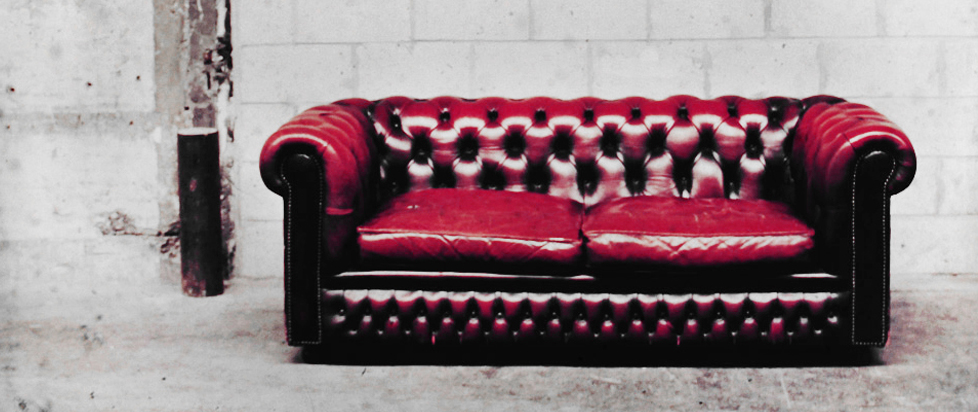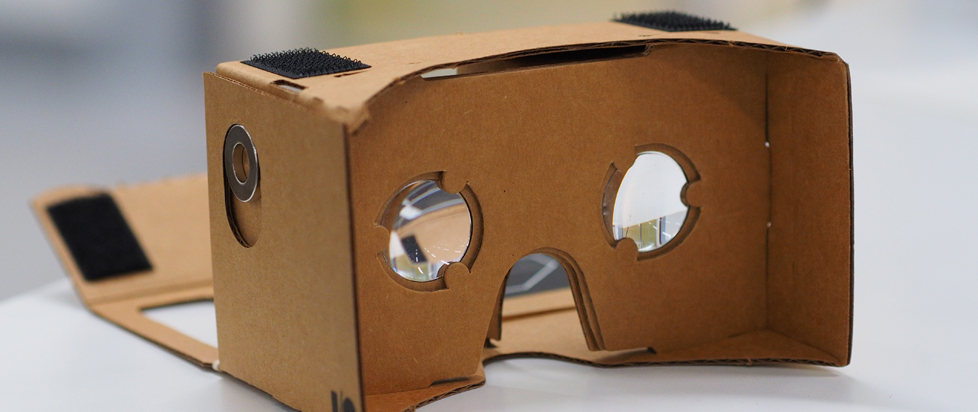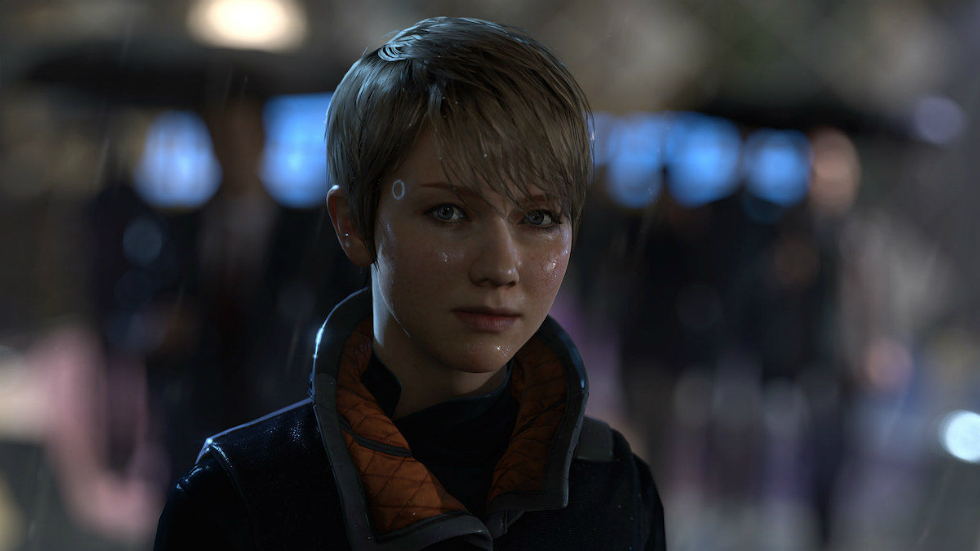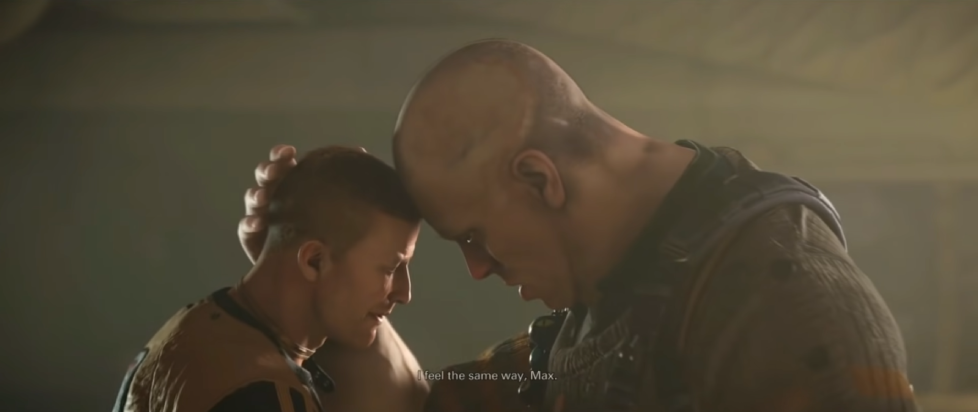
Why Max Hass Matters
I would like to tell you about my uncle.
Now 83 years old, my uncle Gene suffered a series of head injuries as a child. He was left with the approximate intelligence an eight-year old. Gene has a strong speech impediment that makes it difficult for him to be understood by those who do not know him.
He loves puzzles, Pac-Man, and western movies, and he is one of the best people I know.
Of course it is fair to say that he has specific needs that have to be provided for him, and he does not have a complex understanding of the world. Does he really need to, though? He is happy and safe, which are the things that truly matter.
I still find it deeply funny that some of the only adequate representation I can find for him is in one of the most violent, politically-radical games out there.
Wolfenstein II is a game about an America colonized by a fanatical fascist force, and the coalition of people – all written off as unworthy of living in service to the Reich – that confronts the fixation on cruelty, the dehumanization, the contribution of American bigotry to the Nazi political machine. Released in 2017, it is hard to argue against the notion that Machinegames were responding to a wider political moment, rebuking the casual depiction of Nazis as a faceless evil in favor of showing exactly who and what they are, and what their ideology means for anyone who does not fit the perfect mold of the Aryan.
Then it lets you butcher Nazis with an arsenal fit for a platoon.
In a marketing campaign that was derided by some unsavory groups for its co-opting of certain timely campaign slogans (#MakeAmericanNaziFreeAgain), Wolfenstein II makes no attempt to hide its unabashed violence. Its trailers were, save for a few comedic punchlines, a cavalcade of violence, explosions, gunfire, and robots. Nazis are chopped up indiscriminately and casually mowed down by the dozens. It is quite accurate to the moment-to-moment gameplay.
What the game doesn’t wear on its sleeve are the radical modes of resistince in its relentless empathy for those who either will not or cannot work for the Nazis. The Kreisau Circle does not discriminate on any basis: Europeans, Americans, Black Liberation Army-esque New Yorkers, communists, the mentally ill, and the physically disabled are all welcomed and accepted, and allowed to contribute based on their ability. There is no means test to be welcomed as an anti-fascist.
While they are no stranger to internal conflicts, the Kreisau Circle in Wolfenstein II are a community in the truest sense. The act of resisting the Nazi occupation with violence is not enough. The Resistance must also revolt via empathy towards those that fascism casts aside.
And there is no better example of this than Max Hass.
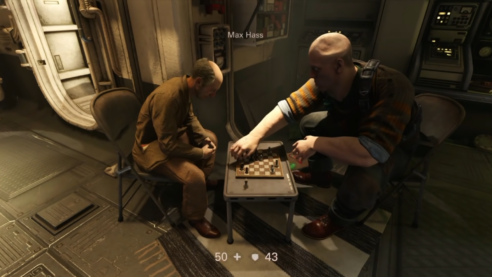
Introduced in Wolfenstein: The New Order, Max Hass is the adoptive son of former Nazi Klaus Kreutz, and he is largely bound to this role for Klaus’ development. With a large indent in his head, and a childish mindset, Max Hass has limited personal and communication skills: his vocabulary is seemingly limited to his own name, though he does possess the ability to differentiate tone.
The New Order falls into the common practice of infantilizing the character, reducing him to a largely-background role as a sort of “team kid.” There are elements that go beyond this (hiding a report with data that will result in the necessary sacrifice of an ally), but he is placed on the backburner enough that this generalization still fits.
Without Klaus Kreutz to attach his character to, the second game instead puts him in the spotlight, as part of the main cast. Almost immediately, he takes on a different role.
While still limited due to his needs, Max Hass is accepted and integrated into the broader resistance. He still spends time playing with toys, doodling, and drawing on people’s clothing without their permission, but Max is also permitted to contribute to plans, go on missions, and communicate with B.J. while on the field. The game never permits the characters to infantilize him. While Max Hass may come across as a “’simpleton,” he is incredibly astute. All of the characters address him as an equal, and while they may soften their tone to be mindful of his needs, it is never done in a way that comes across as dismissive or distant.
Halfway through the game, B.J. is severely incapacitated during a mission gone wrong. Max Hass is a central part of the resistance’s effort to rescue him. When B.J. is rehabilitated, Max is the first person from the Kreisau Circle to embrace him. Characters like Bombate, B.J., and Fergus – all hardened men of action – incorporate Max into their activities in ways that permit him to be useful. Towards the end of the game, in a prolonged moment of levity, the group throws B.J. a birthday party. Max is the one to bake his favorite dessert.
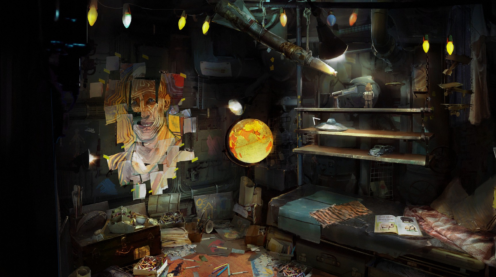
A heavy night of drinking and shenanigans ensues, and Max participates.
He is not put in his room with his toys to wait out the celebration, or dismissed as a child would be among adults. His autonomy is respected enough that he is able to toast with the group, have a knockout-competition with B.J. (he wins), and plays a game of chess with the resident genius (he also wins this).
In his idle animations in between missions, Max can be found coloring on wooden panels in wild, abstract designs. At the end of the game, we find that there was a deeper purpose to this creativity: when assembled, the panels make a mural for Klaus. Max is astute enough to omit the swastika tattoo from his neck – while his promise to only remove it when the Nazis were entirely destroyed wasn’t achieved, it is an acknowledgment of his efforts. It is, in a way, a broader forgiveness for the man he was.
When the Nazis instituted their protocols to massacre those with mental or physical disabilities, they used rhetoric that insinuated that these lives were not worth living. It was an act of mercy, they said, to euthanize them. This rhetoric still exists among many neurotypical people, though to a lesser extent. The lives of those with handicaps are viewed as pitiable, or bittersweet at best. Creativity is seen as lesser-than, unartistic. Only those with a tolerable, easy-to-depict Savant style of neurodiversity are depicted or acknowledged as worth attention.
As I have gotten older and replayed Wolfenstein II a few times since its release, I find myself gravitating more and more towards the empathy that the game has for Max Hass. In him, I see my uncle. And I see the love that my family has for him in the love and patience that the Kreisau Circle has for Max Hass. Representation of this kind is exceedingly important because it demystifies the way that people like my uncle live and enjoy their lives in the same ways that many of us do.
I did not come to understand that he had different struggles than the others in my family until I was ten years old. I loved watching him play Pac-Man all the same.
———
Joshua M. Henson has been playing video games since Doom II at the age of four, and hasn’t shut up about them since. You can find him on twitter posting very occasionally.



